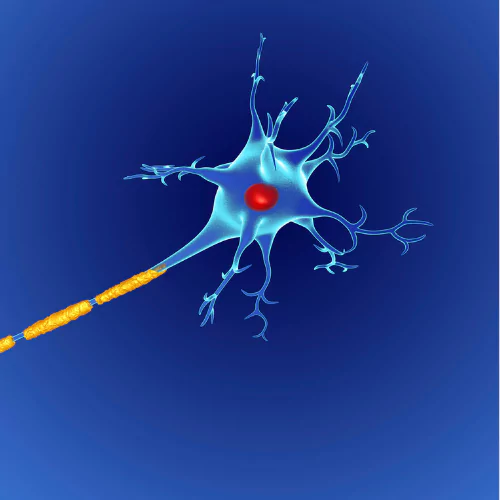Multiple Sclerosis: Causes, Symptoms, and Treatment

Multiple Sclerosis (MS) is a chronic autoimmune disease that affects the central nervous system, including the brain and spinal cord. In MS, the immune system mistakenly attacks the protective covering of nerve fibers, known as myelin, leading to inflammation and damage. This disrupts the communication between the brain and the rest of the body, causing a wide range of neurological symptoms. The severity and progression of MS vary from person to person, making it an unpredictable and often challenging condition to manage.
Causes and Risk Factors
The exact cause of Multiple Sclerosis remains unknown, but researchers believe that a combination of genetic and environmental factors contributes to its development. Genetics play a role, as individuals with a family history of MS have a higher risk of developing the disease. Environmental factors such as vitamin D deficiency, viral infections, and smoking have also been linked to an increased risk. Women are more likely to develop MS than men, and it is most commonly diagnosed in young adults between the ages of 20 and 40.
Symptoms of Multiple Sclerosis
The symptoms of MS vary widely depending on the areas of the nervous system affected. Early symptoms often include fatigue, numbness or tingling in the limbs, muscle weakness, and vision problems such as blurred or double vision. As the disease progresses, individuals may experience difficulty with coordination and balance, muscle stiffness or spasms, cognitive impairments such as memory problems, and issues with bladder and bowel control. The symptoms of MS can come and go in episodes, known as relapses, followed by periods of partial or complete remission. In some cases, the disease follows a progressive course, gradually worsening over time without remission.
Diagnosis and Testing
Diagnosing Multiple Sclerosis can be challenging, as its symptoms can mimic other neurological conditions. Physicians rely on a combination of medical history, neurological exams, and imaging tests to confirm a diagnosis. Magnetic Resonance Imaging (MRI) is the most commonly used test, as it can detect lesions in the brain and spinal cord that are characteristic of MS. Other diagnostic tools include lumbar puncture (spinal tap) to analyze cerebrospinal fluid for abnormalities and evoked potential tests to measure the electrical activity of the nervous system.
Treatment and Management
There is no cure for Multiple Sclerosis, but various treatments can help manage symptoms and slow the progression of the disease. Disease-modifying therapies (DMTs) are the primary treatment for MS, as they work to reduce inflammation and prevent new lesions from forming in the central nervous system. These medications, which include injectable, oral, and infusion-based treatments, have been shown to lower the frequency and severity of relapses. In addition to DMTs, corticosteroids are often used to manage acute relapses by reducing inflammation and speeding up recovery. Symptom management is also a crucial aspect of MS treatment, with medications available to address pain, muscle spasms, fatigue, and depression.
Physical therapy and rehabilitation play an essential role in maintaining mobility and function for individuals with MS. Regular exercise, including stretching, strength training, and balance exercises, can help improve muscle strength and coordination. Occupational therapy can assist individuals in adapting to daily activities, while speech therapy may be beneficial for those experiencing speech or swallowing difficulties.
Living with Multiple Sclerosis
Living with MS requires a comprehensive approach that includes medical treatment, lifestyle adjustments, and emotional support. A healthy diet, adequate rest, and stress management techniques such as meditation or yoga can help improve overall well-being. Many individuals with MS benefit from joining support groups or seeking counseling to cope with the emotional challenges that come with a chronic illness. Advances in research and treatment continue to improve the outlook for those living with MS, offering hope for better management and an improved quality of life.
Conclusion
Multiple Sclerosis is a complex neurological disorder that affects millions of people worldwide. While it remains an incurable condition, early diagnosis and appropriate treatment can help manage symptoms and slow disease progression. Research into the causes and potential therapies for MS is ongoing, and with continued advancements in medicine, the future for individuals living with MS looks increasingly promising. Anyone experiencing persistent neurological symptoms should consult a healthcare professional for an accurate diagnosis and appropriate care.





